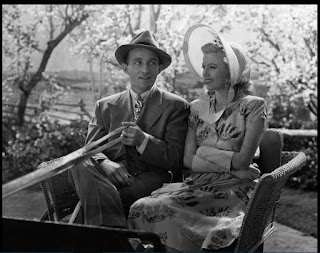
It’s that time of year for hunkering down to watch a Christmas film with the family – and to hold the annual debate over whether or not Die Hard (1988) actually counts as one. Bing Crosby and Danny Kaye it’s not, but Die Hard has yule coming out of its ears. Against the backdrop of a Christmas party, Bruce Willis plays cowboy to Alan Rickman's villain, which on its own should be enough to light up your Christmas Day. It’s got a rescued relationship as a Christmas miracle, and our boy John McClane spends more time in an air duct than Santa spends in chimneys with the help of Reginald VelJohnson, who let’s face it is his Christmas elf. Also, let’s not forget this Christmas gem: “Twas the night before Christmas, and all through the house, not a creature was stirring, except the four assholes coming in the rear in standard two-by-two cover formation.” The follow-up? McClane now has to rescue Dulles Airport on Christmas Eve from terrorists trying to free a drug lord while crashing planes in the process, with his wife on one of the planes. As both director John McTiernan and writer Steven De Souza have confirmed that Die Hard is a Christmas movie, then the creative case would seem very much in favour.

There are nine Christmas motifs detected in Die Hard:
-The basic narrative situation of Die Hard is a man returning to his family for Christmas.
-His wife is called Holly.
-It takes place on Christmas Eve. Not Thanksgiving or the Fourth of July. It could have been set any week of the year, but wasn’t.
-The chief villain Hans Gruber (Alan Rickman) explicitly invokes the Christmas spirit: “It’s Christmas, Theo, it’s a time for miracles.”
-Gruber is a classic bad capitalist villain: he’s there to steal money. Just as Old Man Potter does in It’s a Wonderful Life.
-The soundtrack features Christmas tunes new and old: Run DMC’s Christmas in Hollis and Frank Sinatra’s rendition of Let it Snow.
-Santa Claus makes an appearance (in the form of a dead terrorist).
-The film ends with the of character of limo driver Argyle (De'voreaux White) looking forward to New Year’s Eve.
-And point nine, the clinching argument, perhaps, is that Christmas is a socially invented tradition, and like all invented traditions it continues to adapt and evolve. Films don’t need to include religious references or a man in a red suit, Christmas changes every year and as such what constitutes as a Christmas flick has expanded hugely.

The commercial argument is that Christmas movies are released at Christmas and are generally intended for family audiences. However, Die Hard was a summer release (15 July 1988) in the United States and very obviously for adults. However, this argument that a summer release can’t be a Christmas movie does not hold up to even the most cursory examination. That perennial seasonal favourite Holiday Inn, in which Bing Crosby warbles Irving Berlin’s White Christmas, was also a summer release (4 August 1942), and no one argues that isn’t a Christmas movie. Even the remake, White Christmas, was released in mid-October 1954. So proximity to Christmas is not necessarily a criterion for a Christmas film. Source: theconversation.com
















No comments :
Post a Comment